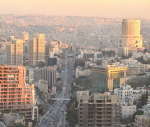You are here
Brinkmanship that could end in war
Feb 16,2016 - Last updated at Feb 16,2016
Amidst the deep schisms, military escalation and political confusion in Syria today, it is difficult to believe that a political breakthrough will succeed in ending the war, put the country on the road to democracy, help it maintain its geographic integrity, disarm hundreds of armed rebel groups, repatriate millions of refugees, launch a process to rebuild hundreds of destroyed towns and villages — all this while satisfying key regional and international players.
Syria’s misfortune is that it has become the core of regional and international power struggle. In fact, even after last week’s vague agreement in Munich to halt hostilities in Syria within a week, few believe a ceasefire is possible or that it will hold.
Recent escalation of military operations by the regime notwithstanding, threats of a ground offensive by US-led forces, mainly from Saudi Arabia, the UAE, Turkey and perhaps others, have shifted attention from diplomacy to war; perhaps even a global one.
Russia’s Prime Minister Dmitri Medvedev admitted that his country is engaged in a new Cold War with the West. Another Cold War is reaching dangerous levels between Saudi Arabia and Iran.
The recipe for a sudden conflagration is there: Moscow has warned Turkey against violating Syrian territory and Ankara’s close allies, the US and France, asked it to stop bombing Kurdish targets in northern Syria.
Turkey is ignoring such calls as it weighs its available options.
Meanwhile, Saudi fighter jets are to arrive soon in Turkey to boost coalition strikes against Daesh, but Riyadh insisted that it is also ready to dispatch its Special Forces to participate in a possible land offensive.
The Turks warned that they will not allow Aleppo, Tal Rifat or Azaz to fall amid signs that the gap is widening between Ankara and its Western allies.
Russia, on its part, said it will continue to strike Aleppo even after a ceasefire goes into effect. The Syrian opposition, too, refused to abide by a truce if Russian and regime bombings continue.
Along the borders with Turkey, the battle lines are blurred and combatants are nearing an inevitable showdown.
A new wave of refugees massing along the Turkish borders is complicating matters further. Europe is naturally worried as Turkish President Recep Tayyip Erdogan threatened to open the floodgates.
There are conflicting agendas in Syria that will prevent a viable political process from taking off.
A perceived US-Russian understanding, at least over the fate of Syrian President Bashar Assad, has angered Washington’s regional allies, especially Saudi Arabia and Turkey.
In Riyadh’s case, Assad must leave now or he will have to leave by force.
For Turkey, recent territorial gains by Syrian Kurdish groups present an existential threat. These groups are now supported by both Russia and the US.
At the same time, the Syrian army has advanced to fron-tline positions in northeastern Syria, not far from Raqqa, the self-declared capital of Daesh. If government forces wage an attack on Daesh, how will the US-led coalition react?
There is no doubt that Russia’s military intervention in Syria last year changed the dynamics of the Syrian conflict. Today, Russia sees itself as the main stakeholder in Syria as it intervenes to salvage the regime.
Moscow managed to rescue Assad and reverse opposition gains. Its attitude over Syria is both defiant and reckless.
And as the Obama administration lost its bearings in Syria, Washington drifted slowly away from its regional allies and moved closer to Moscow in a bid to focus efforts on Daesh.
But it is now clear that Moscow is not interested in finding a political solution to the Syrian crisis along the Geneva I principles, the Vienna understandings and relevant UN Security Council resolutions.
The Russians are determined to destroy rebel groups and enable the regime to recapture strategic positions on the ground. Fighting Daesh is not a priority for Moscow, for now.
This is a confusing picture that has pushed US regional allies to recalibrate their positions.
For Saudi Arabia, Assad’s triumph would hand Syria to Iran, via the Russians, and would strengthen Tehran’s hold on Iraq and perhaps Lebanon as well.
For Ankara, unless they are stopped, Syria’s Kurds will emerge with their own independent entity, which will heighten tensions in Turkey’s own Kurdish regions. For Erdogan this is a red line that will not be crossed.
But despite the intersecting and often conflicting military developments, it is difficult to imagine a full-fledged conclusion to the Syrian crisis by force by any party.
This is a sensitive stage in the Syrian conflict and all parties will have to think carefully about their next move.
With tensions mounting along the Turkish-Syrian borders, the possibility of a sudden conflagration between key players is high.
For now, all parties are resorting to brinkmanship, while Syria is evolving into a perfect battlefield.
The writer is a journalist and political commentator based in Amman.














